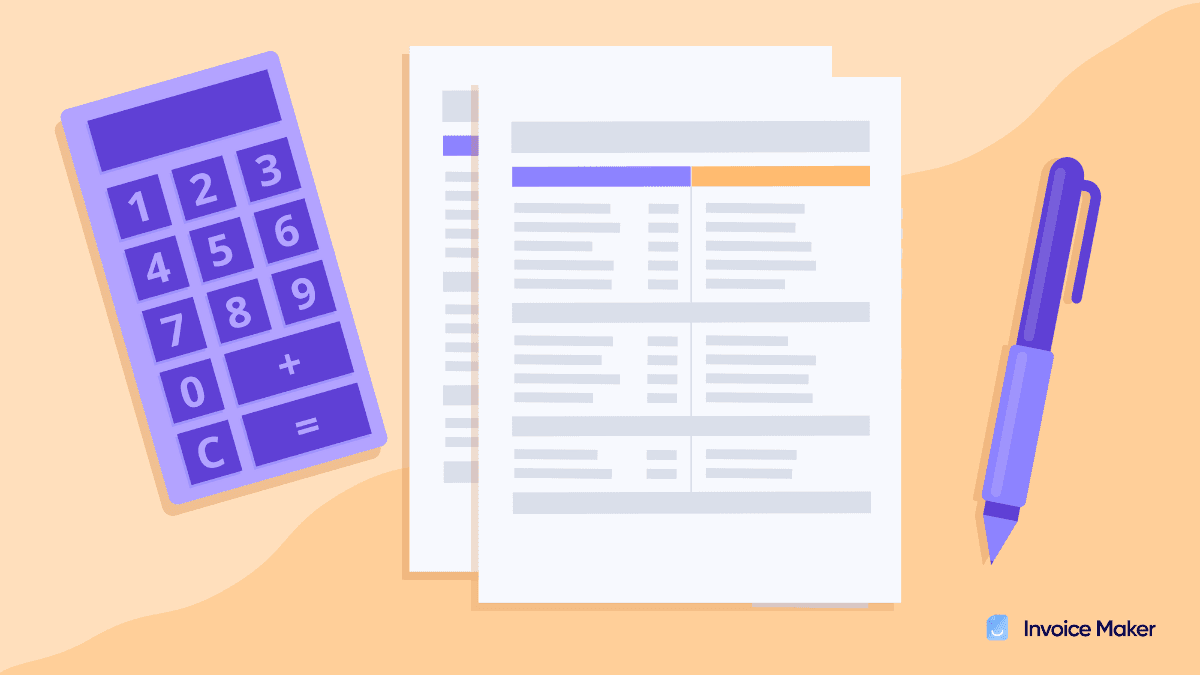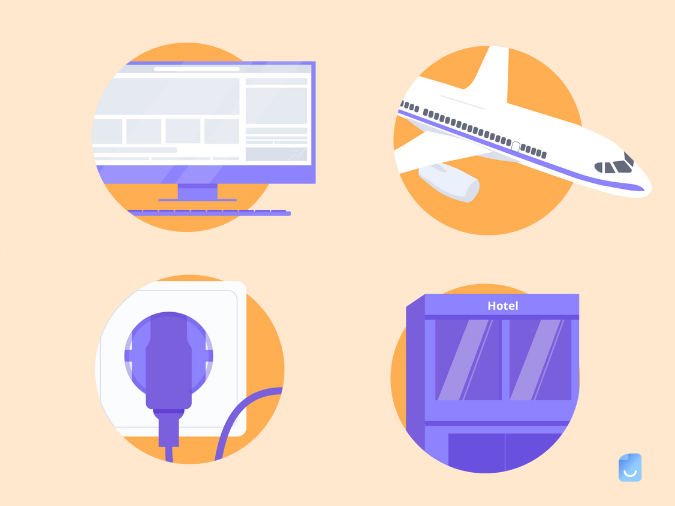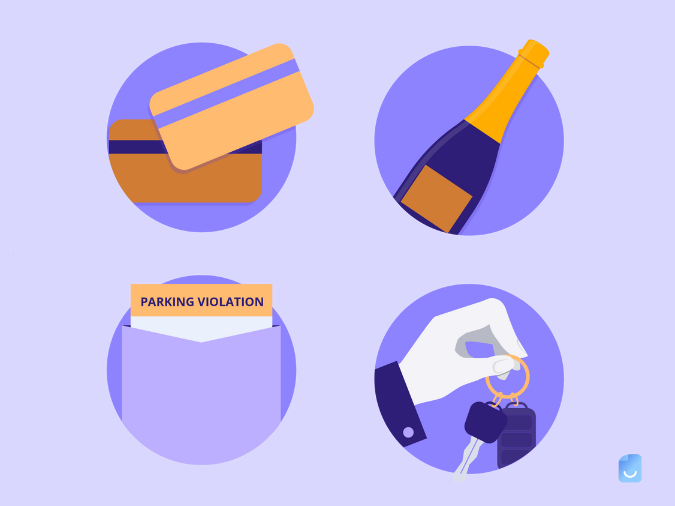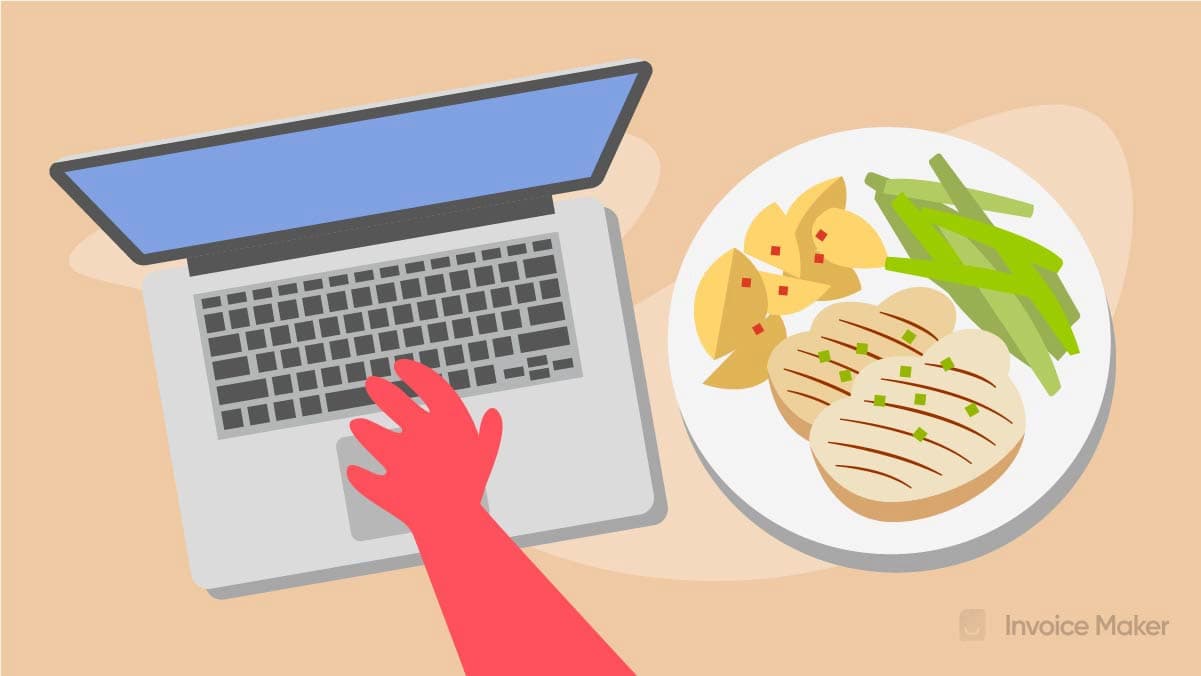Reimbursable Expenses: A Guide for Solopreneurs and Small Business Owners

Whether you’re an electrician or a freelance translator, there are typical costs to incur while working on client projects. You may hire a courier to transport client paperwork. Or, you may have to buy unexpected materials. If the client is responsible for these out-of-pocket costs, they are considered reimbursable expenses.
Make a Free Invoice NowThis blog discusses what is and isn’t a reimbursable expense. It also offers best practices for invoicing clients and keeping accurate records.
What Are Reimbursable Expenses?

Reimbursable expenses are fees small businesses incur while completing projects for clients. After paying for these costs out-of-pocket, businesses send invoices requesting repayment. There are no hard-and-fast rules regarding what type of expense is and isn’t reimbursable. However, it’s generally agreed that reimbursable expenses must be necessary to a project and reasonable to charge to the client.
Here’s an example. A local land conservancy organization contracts a freelance videographer to make a documentary about one of its programs. The nonprofit wants the videographer to travel 500 miles to capture B-roll footage at a nature preserve. The videographer tracks their miles and bills the nonprofit for gas costs.
In this example, traveling to the nature preserve is crucial to completing the documentary. Therefore, it’s entirely reasonable to invoice the client for gas expenses. However, it’s less so to invoice the client for the road snacks eaten along the way.
Examples of Reimbursable Expenses
What is and isn’t a reimbursable expense in the small business world varies from entrepreneur to entrepreneur. For example, while some freelancers charge clients for postage, others will chalk a 60-cent stamp up to a loss. The following examples can help navigate this ambiguity:
Minor Reimbursable Expenses

Minor reimbursable expenses are small costs unaccounted for at the beginning of a project. For instance, while you may not usually charge clients for standard postage, you may ask for reimbursement if a client requests overnight shipping.
Similarly, you may not typically request mileage compensation for face-to-face client meetings. However, if a client requests to meet 100 miles away last minute, you may consider this grounds to ask for a reimbursement. Other examples of minor reimbursable expenses include
- Office supplies;
- Phone or internet charges;
- Meals; and
- Parking or toll fees.
Major Reimbursable Expenses

Major reimbursable expenses are higher costs that clients must pay to complete a project. Sometimes, your initial estimate accounts for these costs. Other times, these costs are unforeseen.
For example, a septic contractor may assume they can install an inexpensive septic tank on a homeowner’s property. However, once he starts digging, he may realize that the soil type can only support a costlier option. In this case, the contractor would purchase the more expensive materials out-of-pocket and then request reimbursement. Other examples of major reimbursable expenses include
- Airfare and mileage;
- Equipment;
- Hardware and software;
- Lodging; and
- Subcontracting fees.
What Expenses Aren’t Reimbursable?

As previously noted, there are no definitive guidelines to follow when it comes to determining what is and isn’t reimbursable. However, there are some common sense recommendations all solopreneurs and small business owners should heed. Namely, you should not request reimbursement for
- Credit card fees;
- Lavish dinners;
- Parking and traffic tickets;
- Rental car and lodging upgrades; and
- Valet service.
Also, avoid invoicing clients for entertainment fees. If you visit a museum for fun while traveling for work, don’t charge the client for the cost of admission. Now, if you’re a historian collecting information for a client project a museum visit might even be a reimbursable expense.
If you’re having trouble determining whether or not an expense is reimbursable, ask yourself: Was the cost required for the client’s project, and is it reasonable to bill them?
Tax Implications of Reimbursable Expenses
Reimbursable expenses are not considered taxable income. Why? Payments are not for goods or services when billing a client for out-of-pocket costs. It’s simply repayment for a work-related expense.
These expenses can make bookkeeping tricky. If you don’t keep careful records, you risk overstating income. For example, a plumber needs to install a toilet for a homeowner and the materials cost $300. If she doesn’t properly account for this reimbursable expense, it will look like she made an extra $300 of taxable income.
Some accountants suggest treating a reimbursable expense as a short-term loan in financial records to avoid confusion. This way, it balances out in the books once the client settles their bill.
Regardless, you need to maintain accurate records for the IRS. Keep all invoices, receipts, and other documentation related to the expense on file. Otherwise, the IRS can argue that a reimbursable expense should have been treated as taxable income.
How to Request Reimbursement from Clients
Requesting reimbursement for out-of-pocket expenses is crucial to run a financially solvent small business or solo venture. But how do you go about asking clients to pay you back? Here are three steps to follow if you need to invoice clients for reimbursable expenses:
Step 1: Set Ground Rules
When you send a project estimate, include a stipulation explaining that clients are responsible for unforeseen expenses. For example, “This estimate is an approximation. The actual cost may change once all project elements are finalized. Any additional materials or services requested will result in additional charges.”
You may even offer more specific language like: “All face-to-face client meetings hosted outside a 20-mile radius of [insert office address] are subject to a mileage surcharge.”
No matter the exact phrasing, having something in writing covers you if and when a client refuses to pay.
Step 2: Keep Accurate Documentation
Keep receipts and record each client’s expenses in a spreadsheet or with an expense tracking tool.
Step 3: Invoice the Client
Once you complete the project, total all reimbursable expenses and add them to the client’s final invoice. There are many ways to format an invoice. It’s recommended to keep reimbursable expenses separate from other costs. It may also be helpful to provide clients with an expense report (itemized list of costs).
Reimbursable Expenses FAQs
What types of business expenses are reimbursable?
A business expense is reimbursable if incurred while completing a project for a client. For example, a general contractor may purchase lumber for a new deck. Since this material was necessary for the project, he would request reimbursement from the client.
Do you include reimbursable expenses on an invoice?
Yes. You can include reimbursable expenses on an invoice. However, it’s a good idea to separate these costs from others. Providing an itemized expense report is helpful too.
Do reimbursements require receipts?
Yes. You should always keep receipts when purchasing something out-of-pocket for a client.
Are reimbursable expenses considered taxable income?
No. Reimbursable expenses are not regarded as taxable income.


